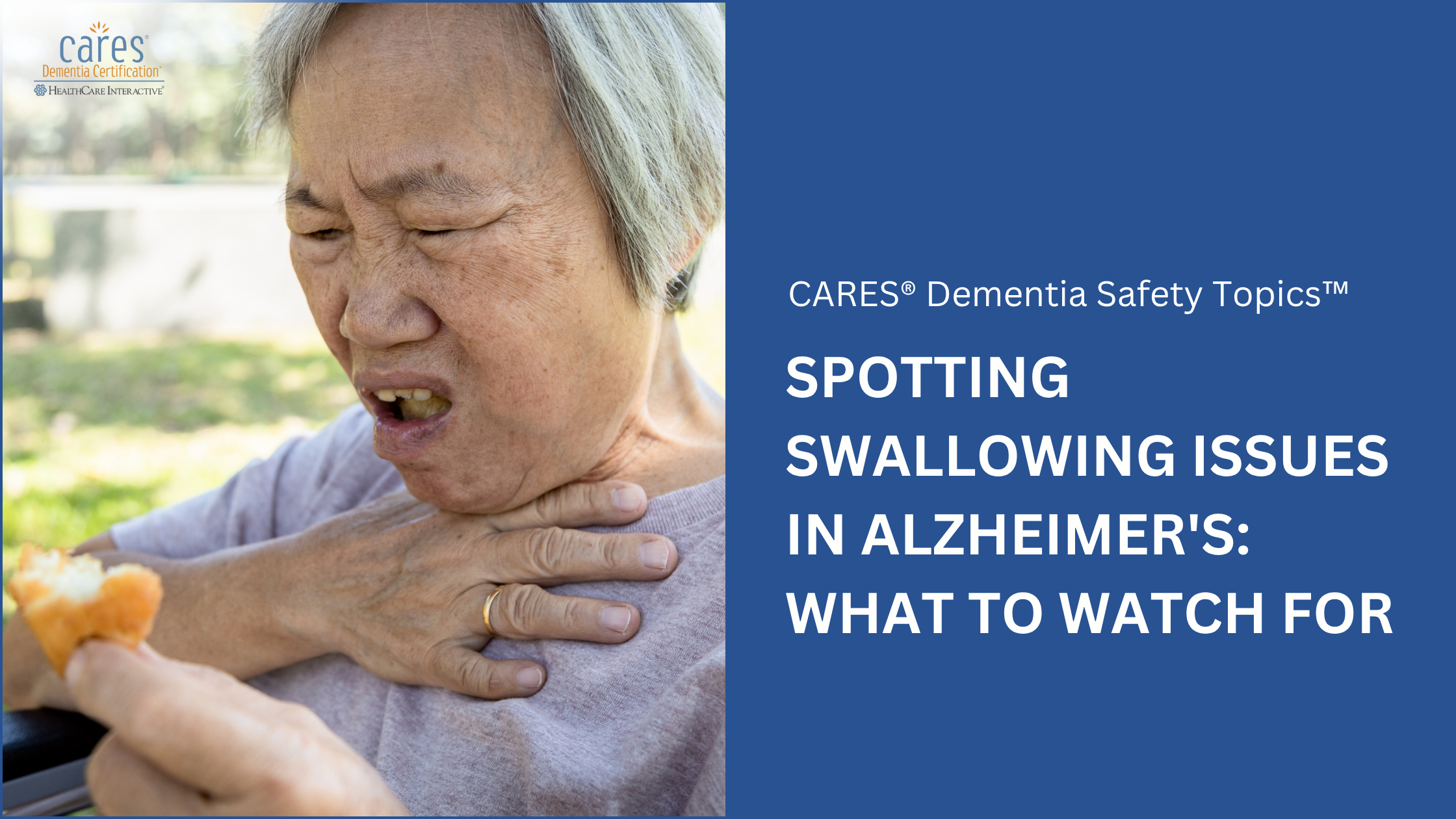Swallowing is a function we often take for granted. Yet, for individuals living with Alzheimer’s disease, this seemingly simple task can become increasingly difficult as the condition progresses. Difficulty swallowing, known as dysphagia, is a common and serious complication in the later stages of dementia. Left unaddressed, it can lead to malnutrition, dehydration, aspiration pneumonia, and a decline in overall health.
As a caregiver, recognizing the early warning signs of a swallowing problem is essential to ensure safety, comfort, and appropriate medical intervention for your loved one or those under your care.
Why Swallowing Becomes Difficult in Alzheimer’s Disease
Alzheimer’s affects more than just memory—it impairs coordination, muscle function, and the brain’s ability to control the complex process of swallowing. As the disease advances, individuals may forget how to chew or swallow or become unable to recognize the food in front of them.
Key Warning Signs of Swallowing Difficulties
If you’re caring for someone with Alzheimer’s, be alert to these common signs of a swallowing problem.
• Complaints of pain or difficulty when swallowing
The person may verbally express discomfort or seem distressed when trying to eat or drink.
• Leaking food or saliva from the mouth
This may indicate a loss of muscle control in the lips or jaw.
• Coughing before, during, or after meals
This could mean food or liquid is entering the airway instead of the esophagus.
• Choking while eating or drinking
A serious sign that requires immediate attention to prevent aspiration.
• Increased congestion or runny nose after meals
This could be a subtle sign of aspiration or food entering the nasal passages.
• Change in voice quality
A wet, gurgling, or hoarse voice after eating or drinking may indicate that food or liquid has entered the airway.
• Food retention in the mouth or throat
Watch for food lingering in the cheeks or not being swallowed properly.
• Resistance to being fed or eating
This may stem from fear of choking or discomfort while swallowing.
• Refusal to open the mouth
A sign of discomfort, confusion, or loss of interest in eating.
• Unexplained weight loss
Often a late sign, weight loss may result from inadequate nutrition due to swallowing issues.
Notify a supervisor or physician if any of the above symptoms are observed.
Maintaining Dignity During Mealtimes
Beyond recognizing the physical signs, it’s just as important to maintain a person’s dignity while eating. For those who struggle to keep food in their mouths, be mindful of how you assist them.
Avoid scraping the spoon across their lips or the area around their mouth. This can be both painful and embarrassing. Instead, gently use a napkin to wipe their mouth. Even better, if the person is able, ask them to wipe their own mouth when needed. This simple act respects their autonomy and self-esteem.
Helping someone with dementia starts with understanding and support. To make that journey easier, get 10% OFF any training and certification program with promo code SunnyJuly at checkout. Offer valid through July 31, 2025.


